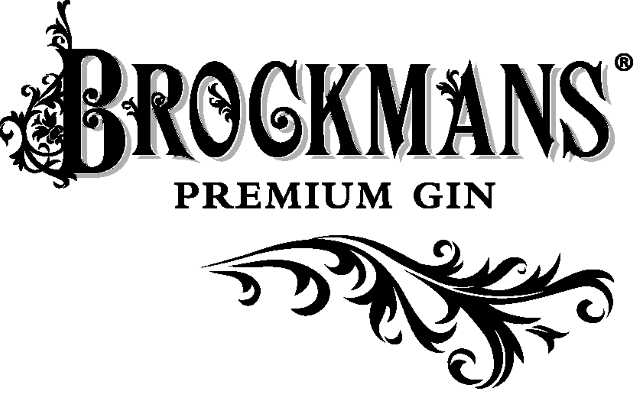An Entrepreneur’s Instinct
An Entrepreneur’s Instinct – Does big business need more of it?
Village East, 171-173 Bermondsey Street, London SE1 3UW
 While every large business will talk up its entrepreneurial qualities, the reality experienced by many drinks industry professionals can be quite different. The need for robust systems and processes, as well as to reconcile the expectations of a range of stakeholders, tends to steer big companies towards caution rather than courage.
While every large business will talk up its entrepreneurial qualities, the reality experienced by many drinks industry professionals can be quite different. The need for robust systems and processes, as well as to reconcile the expectations of a range of stakeholders, tends to steer big companies towards caution rather than courage.
Is it inevitable that big businesses will display less entrepreneurial spirit than their smaller cousins? The latest Cesium Group round table discussion on industry trends brought together drinks industry leaders with experience of both large and small operations to discuss ways that the bigger players can bottle some of that elusive entrepreneurial instinct.
Attendees
- CHAIR – Paul Haslam Managing Director, Cesium Group
- Damian Clarke Managing Director, Freixenet
- Simon Little Sales Director, Funkin
- Peter Hills Founder, Hackney Brewery
- Shilen Patel Distill Ventures – Independents United
- Ayo Akintola Managing Director, Oddbins
- John Thew Managing Director, Giant Jimmy
- Julie-Anne Slade PA, Cesium Group
 What is it that drives big businesses to seek out entrepreneurial style, and what are the characteristics that they’re so desperate to acquire?
What is it that drives big businesses to seek out entrepreneurial style, and what are the characteristics that they’re so desperate to acquire?
There was general agreement that the big business model has core strengths, which include both the ability to scale a business, as well as to focus on the essentials of successful brand growth. However, as one participant argued, “the old rule that just being big is more efficient, and anyone who is small won’t be able to compete, just doesn’t apply any more.”
Fast-changing consumer tastes have increased the need for innovation in bigger drinks businesses. However, this highlights a long-standing weakness of the big business model, where the focus is on “the need to hit the numbers the City is expecting, rather than the opinions of an individual spending his evenings in cocktail bars” who sees an entrepreneurial opportunity.
So, as one participant summed up, the question becomes “should big companies attempt to become more entrepreneurial, or should they be harnessing the power of entrepreneurs who sit outside their organisation?”
 Are big businesses configured in ways that actively discourage entrepreneurship?
Are big businesses configured in ways that actively discourage entrepreneurship?
One participant quoted the example of a brand innovation team within a larger drinks company pitching new ideas. When asked how much of their salary they would bet on success, they would not commit. “It’s not that they’re doing a bad job, because they’ve been well trained, but that’s the difference with an entrepreneur.”
Another made the point that “most people like certainty and clarity, with things set out for them, while entrepreneurs are just naturally comfortable with not knowing how things are going to work out!”
In this context, the view was that it is not that bigger companies actively discourage entrepreneurism, but that a range of factors work against them. One participant highlighted the leadership challenge of trying to encourage staff to be innovative within the restraints of established systems, procedures and supplier agreements. “In the end, we’ve blocked off all the avenues they have to be entrepreneurial.”
When does a business stop being entrepreneurial?
There was a view that there is a moment in many companies when the process becomes more important than the purpose. “As soon as senior leaders forget why the company exists in the first place, it becomes about efficiency, scale and money,” said one participant.
He suggested the challenge is to start with the question “why?” “Why do you get out of bed in the morning, why does the company exist? A company has forgotten why it exists when, for example, it puts short term shareholder return over the purpose behind the company.”
What are the entrepreneurial characteristics that businesses are so desperate to acquire?
It was noted that while many entrepreneurs are commercially savvy, at their core is often a drive that goes beyond financial gain. One participant described this as “irrational belief” in both themselves and their ideas – the view that no matter how many times something might have been tried, “this time it will work”.
Another described the essence of entrepreneurship as “owning the responsibility for the company that you work for, and having ownership of your actions.”
However, larger businesses can play a vital role in taking entrepreneurial ideas to the next level, because, as it was bluntly put, “entrepreneurs can be a bit of a nightmare to deal with!” There comes a point “when you need people that can make that bright spark into something scalable.”
So, can big businesses drive more entrepreneurial behaviour? And is this about process, or about people?
There was a feeling that many bigger companies have still to grasp the democratising effect that social media has in allowing individual employees to innovate and communicate, without complex approval processes. One participant contrasted the new breed of craft drinks companies who “say what they like” with the old guard who “don’t understand social media”.
This was highlighted as a leadership issue, with CEOs needing to support employees who stick their neck out, rather than allowing HR and corporate communications departments to rein them in. There are major advantages in “creating a culture where everyone makes decisions like business owners, not as selfish employees.”
In Conclusion
In a wide ranging discussion, there was general agreement that the drinks market has changed significantly, with simply being big no longer conferring an automatic advantage over smaller, more entrepreneurial drinks businesses.
Culturally, this does not necessarily require wholesale change. As one participant said, “there are lots of things that can be done around the edges, to become more entrepreneurial culturally.” There was a strong belief that regardless of size, every business has the potential to harness the entrepreneurial spirit through better employee engagement, with everyone working towards a shared goal and purpose that means something on an emotional as well as a commercial level.
















